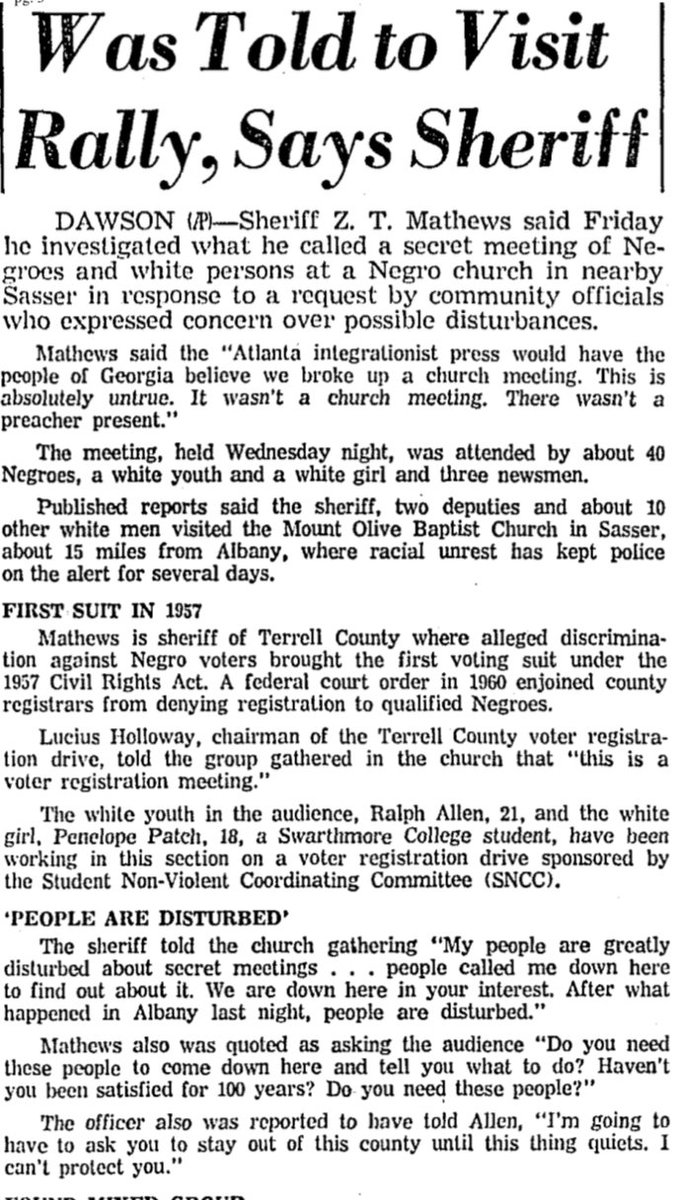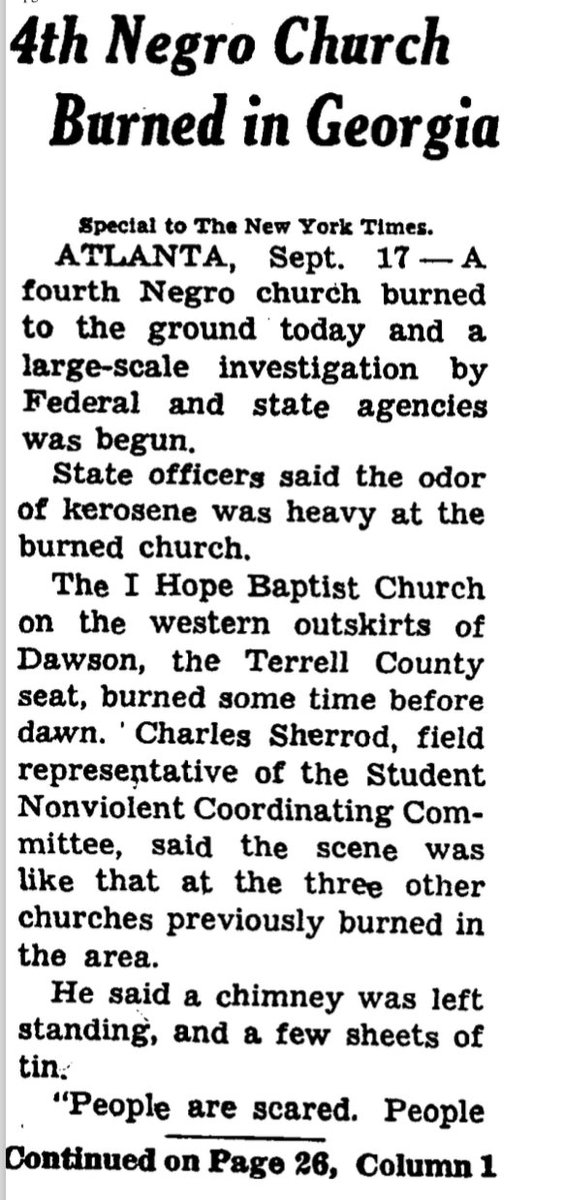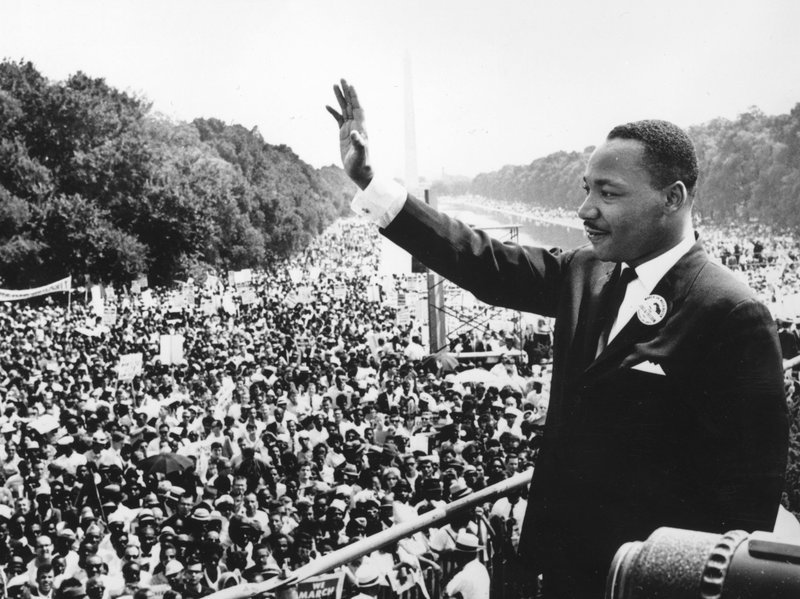Some are famous, like Georgia's Congressman John Lewis, a former SNCC activist. But of course, many more are not.
They know, as @fivefifths noted, the price that their generation paid to secure the right to vote, and how precious -- and precarious -- that right is now.
My first book was about segregationists in Atlanta, but they weren't remotely the worst of the bunch.
Charles Sherrod, featured in the stories above, led the way. You can read more about him and his work here. snccdigital.org/people/charles…

en.wikipedia.org/wiki/Firing_of…
But local black activists led the way and paid the price.
Charles and Shirley Sherrod live in Albany in the southwestern part of the state, having refused to be run out by white supremacists.
And their SNCC colleague John Lewis represents Atlanta in Congress.
What @BrianKempGA is doing to limit the black vote clearly echoes the earlier resistance. And now it seems local police might be using the same old tricks too: newyorker.com/news/dispatch/…
Because it can be undone. It *is* being undone. Right now.


















